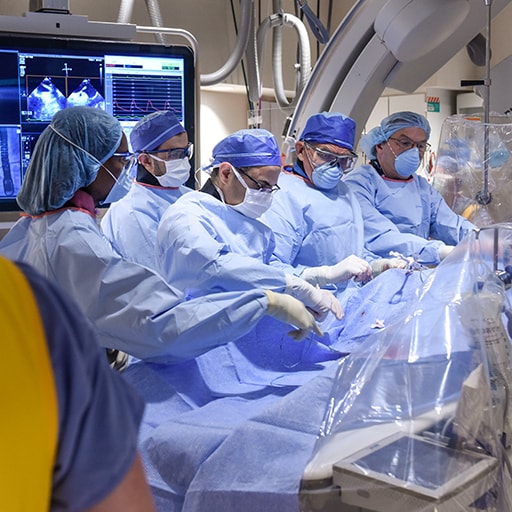How Cardiology care protects your cardiovascular health long-term
Recognizing the Importance of Cardiology in Modern Medical Care Providers
Cardiology plays an important role in modern health care, specifically as cardiovascular disease continues to be the leading root cause of death worldwide. Advances in diagnostics and treatment have transformed patient care, allowing earlier interventions and boosted end results. The change in the direction of preventive cardiology empowers people to manage their wellness proactively. As innovation remains to develop, the integration of innovative services might better redefine cardiology's influence on public wellness, prompting a more detailed examination of arising patterns and their implications.
The Occurrence of Heart Problem and Its Influence On Public Wellness
Heart illness continues to be the leading cause of fatality internationally, its influence extends much past individual patients to affect public health systems and economic situations. The high prevalence of heart problem positions a substantial stress on medical care sources, necessitating boosted funding for therapy, rehab, and prevention programs. Public health and wellness efforts need to attend to risk aspects such as obesity, cigarette smoking, and sedentary lifestyles, which add substantially to the increasing occurrence of heart conditions.Moreover, the financial concern connected with heart illness is enormous, including not only direct clinical expenses however also indirect expenses connected to shed performance and early mortality. Areas encounter difficulties in taking care of these prices, usually resulting in disparities in healthcare accessibility and results. As the populace ages and lifestyle-related threats remain to rise, the seriousness for effective cardiology treatments comes to be critical. Addressing heart disease is not only an issue of individual health and wellness but additionally a vital public health and wellness priority.
Advances in Heart Diagnostics and Imaging Techniques
Current innovations in heart diagnostics and imaging methods have actually revolutionized the field of cardiology, boosting the capacity to keep an eye on and find cardiovascular disease. Methods such as cardiac MRI, CT angiography, and echocardiography have actually become increasingly sophisticated, supplying in-depth images of cardiac structures and functions. These methods permit the early recognition of conditions like coronary artery condition, cardiac arrest, and valvular disorders.Moreover, developments in non-invasive diagnostics, such as wearable technology and remote monitoring devices, have actually encouraged clients and medical care carriers. These devices promote real-time monitoring of heart rhythms and other essential signs, bring about prompt treatments. In addition, expert system is being incorporated right into imaging analysis, boosting precision and effectiveness in medical diagnosis.
Innovations in Treatment Choices for Heart Issues
Current improvements in cardiology have brought about significant advancements in treatment choices for heart conditions. These include sophisticated surgical techniques that boost step-by-step outcomes and emerging medicines that offer brand-new avenues for therapy. As the area develops, these advancements play an important function in enhancing person care and results.
Advanced Surgical Techniques
Technologies in medical techniques have actually transformed the landscape of cardiology, supplying brand-new wish for patients with heart conditions. Minimally intrusive treatments, such as catheter-based interventions, have actually considerably reduced healing times and medical facility stays. Strategies like robotic-assisted surgical procedure improve accuracy, allowing specialists to browse complicated anatomical structures with better precision. Developments in imaging innovation promote real-time visualization during procedures, boosting end results. Transcatheter aortic valve replacement (TAVR) exemplifies an innovation in dealing with aortic stenosis, enabling shutoff substitute without open-heart surgery. Furthermore, hybrid approaches that incorporate catheter-based and medical methods supply tailored solutions for various heart concerns. These sophisticated surgical methods not just boost individual safety and security yet additionally increase treatment alternatives, emphasizing the crucial duty of technology in modern-day cardiology methods.
Arising Drugs and Therapies
As the landscape of cardiology remains to evolve, emerging medicines and treatments play a crucial function in boosting treatment alternatives for heart disease. Technologies such as novel anticoagulants and progressed lipid-lowering representatives have actually changed the management of cardiovascular conditions, significantly lowering person morbidity and death. Additionally, the growth of genetics treatments and regenerative medication provides promising methods for dealing with conditions formerly regarded permanent. Medical tests are constantly revealing the effectiveness of these treatments, pressing the borders of conventional treatments. The combination of electronic health technologies helps with individualized medication, enabling for tailored therapy plans based on hereditary and way of living elements. Collectively, these developments underscore the dynamic nature of cardiology, enhancing client results and redefining requirements of care in modern medical care.
The Role of Preventive Cardiology in Individual Treatment
Precautionary cardiology plays a crucial role in person care by concentrating on the recognition of threat variables that add to heart disease. With way of living modification methods and very early detection methods, doctor can properly decrease the occurrence of cardio events - Cardiology. This aggressive approach not only boosts client end results yet also advertises long-term health and wellness
Threat Variable Identification
While heart diseases stay a leading reason for morbidity and death worldwide, efficient threat factor recognition acts as a foundation of preventive cardiology. Identifying threat variables such as high blood pressure, family, hyperlipidemia, and diabetic issues history is important for early intervention. Medical care experts utilize various screening methods to examine these aspects, enabling for customized preventative measures. Furthermore, comprehending a client's lifestyle options, such as cigarette smoking and physical inactivity, better notifies risk analyses. This thorough assessment makes it possible for clinicians to create individualized care strategies targeted at mitigating risks. By prioritizing threat factor identification, healthcare systems can boost individual end results and reduce the overall burden of heart diseases, eventually contributing to boosted public health approaches and source allotment.
Lifestyle Modification Techniques
A wide range of research studies highlights the vital role of lifestyle adjustment techniques in decreasing heart disease threat. These techniques include nutritional modifications, boosted physical task, smoking cigarettes cessation, and weight management. By taking on a heart-healthy diet rich in fruits, veggies, whole grains, and lean proteins, individuals can lower cholesterol degrees and high blood pressure. Regular physical activity enhances the heart and enhances overall cardio health. Additionally, giving up smoking cigarettes considerably decreases the danger of heart problem and boosts healing prices for those with status quo. Weight monitoring additionally contributes to cardio health and wellness by minimizing other danger elements such as diabetic issues and hypertension. Applying these lifestyle changes not only advertises specific health yet likewise works as a foundation of preventive cardiology in patient care.
Very Early Detection Techniques
Lifestyle modifications greatly contribute to decreasing heart disease risks, yet they are most reliable when paired with very early discovery methods. Preventative cardiology highlights the value of identifying potential heart issues before they rise right into serious problems. Techniques such as high blood pressure tracking, cholesterol screening, and progressed imaging modern technologies like echocardiograms play critical roles in evaluating cardio health and wellness. Biomarkers and genetic screening likewise enhance the precision of very early discovery, enabling for customized precautionary techniques. Routine cardiac risk examinations empower medical care carriers to interfere proactively, possibly avoiding cardiovascular disease and strokes (Cardiology care). By integrating these early discovery approaches right into regular treatment, patients can take advantage of timely lifestyle interventions and targeted treatments, ultimately improving and boosting outcomes quality of life
Integrating Innovation Into Cardiology Practices
As advancements in modern technology remain to reshape different fields, the assimilation of cutting-edge tools and systems into cardiology methods has actually become necessary for boosting individual care and results. Telemedicine platforms permit cardiologists to monitor patients remotely, boosting accessibility to care while minimizing the worry on medical care centers. Wearable gadgets, such as smartwatches, enable continual heart price surveillance, notifying see this website both doctors and patients to prospective issues in real-time. In addition, expert system (AI) is being used to evaluate vast quantities of heart data, helping in very early diagnosis and personalized therapy strategies. Advanced imaging strategies, consisting of 3D echocardiography, improve visualization of heart structures, leading to a lot more precise treatments. Electronic health documents (EHRs) streamline client details management, making sure that cardiologists have instant access to essential data. With each other, these technological improvements are changing cardiology, advertising proactive monitoring and improved health and wellness end results for individuals with cardiovascular problems.
The Significance of Client Education And Learning and Engagement
Person education and learning and involvement play an essential function in the monitoring of cardio health and wellness. By gearing up individuals with expertise about their conditions, therapy alternatives, and lifestyle adjustments, medical care suppliers empower individuals to take an active role in their treatment. This proactive approach can bring about enhanced adherence to recommended medications, dietary changes, and workout routines, ultimately decreasing the risk of complications.Engagement additionally fosters a strong patient-provider connection, motivating open communication and trust fund. When patients really feel informed and involved, they are more probable to voice concerns and ask concerns, which can lead to much better clinical outcomes. In addition, academic sources, such as workshops or digital platforms, can boost understanding and promote self-management strategies. On the whole, prioritizing client education and learning and engagement is essential for enhancing cardio health, enhancing top quality of life, and decreasing healthcare prices connected with cardio conditions.
Future Trends in Cardiology and Their Possible Impact

Often Asked Inquiries
What Way Of Life Adjustments Can Lower Cardiovascular Disease Danger?
The existing concern addresses way of life adjustments that can substantially lower heart problem threat. Dr Garcia. Taking on a well balanced diet plan, taking part in normal exercise, preserving a healthy weight, taking care of stress and anxiety, and staying clear of cigarette can significantly improve cardio wellness
How Can I Identify Early Indications of Heart Problems?
Acknowledging very early indicators of heart problems involves surveillance signs such as breast discomfort, lack of breath, tiredness, and uneven heartbeat. Prompt understanding of these indicators can motivate essential medical evaluation and intervention for far better outcomes.
What Are the Differences In Between Cardiologists and Heart Surgeons?
The differences in between cardiologists and heart specialists hinge on their functions; cardiologists primarily handle and identify heart disease with non-invasive techniques, while heart surgeons perform procedures to fix architectural heart concerns. Each plays a crucial, distinct role.

Just how Frequently Should I Obtain My Heart Health And Wellness Checked?
The regularity of heart checkup varies based upon private risk elements. Usually, adults ought to undergo analyses every one to two years, while those with status quo may call for more constant evaluations as advised by medical care experts.
What Duty Does Genetics Play in Cardiovascular Disease Danger?
Genetics substantially moved here influences cardiovascular disease danger, with domestic patterns suggesting acquired conditions. Details genes can incline individuals to high blood pressure, cholesterol issues, and other cardio issues, highlighting the relevance of genetic testing in evaluating heart health and wellness. Heart disease stays the leading reason of death internationally, its impact extends far beyond specific patients to influence public health and wellness systems and economies. Public health and wellness campaigns should resolve risk elements such as excessive weight, smoking, and inactive way of livings, which contribute considerably to the climbing occurrence of heart conditions.Moreover, the economic concern linked with heart condition is immense, including not just straight clinical costs but likewise indirect costs connected to shed productivity and premature mortality. Precautionary cardiology plays a crucial duty in patient care by concentrating on the recognition of threat variables that add to heart disease. Artificial intelligence (AI) and device discovering are improving diagnostics and individual surveillance, making it possible for very early discovery of heart conditions. The distinctions in between cardiologists and heart specialists exist in their functions; cardiologists mostly handle and identify heart conditions through non-invasive methods, while cardiac surgeons perform medical treatments to remedy architectural heart click for info problems.